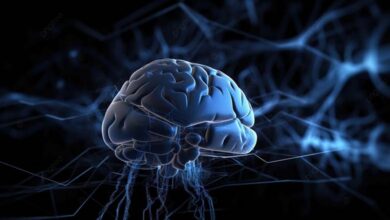Chronic Insomnia: A Silent Accelerator of Brain Aging

Sleep is a fundamental pillar of human health, both physically and mentally. Far from being merely a period of rest, it is an active phase of brain regeneration, memory consolidation, metabolic waste clearance, and neural network reorganization. When sleep is repeatedly and persistently disrupted, as in chronic insomnia, the brain’s integrity is jeopardized. Emerging research indicates that chronic insomnia can act as a catalyst for accelerated brain aging, weakening cognitive functions and increasing the risk of neurodegenerative diseases such as Alzheimer’s or vascular dementia.
The central role of sleep in brain health
During sleep, the brain performs vital functions. Deep slow-wave sleep consolidates declarative memory and strengthens neural circuits, while REM sleep plays a key role in emotional regulation, creativity, and integration of daily experiences. Simultaneously, the glymphatic system becomes highly active, flushing out metabolic waste, including beta-amyloid and tau proteins, whose accumulation is linked to neurodegenerative disorders.
In individuals with chronic insomnia, these restorative processes are disrupted. Repeated sleep deprivation leads to toxin accumulation, gradual degradation of synaptic connections, and weakened memory and attention systems. Neurons become more vulnerable to oxidative stress and inflammation, accelerating cellular senescence and premature brain aging.
Scientific evidence of insomnia-induced brain aging
Neuroimaging studies have shown that chronic insomnia is associated with cortical thinning in the prefrontal cortex and reduced hippocampal volume. These regions are critical: the prefrontal cortex for executive function, decision-making, and attention; the hippocampus for learning and memory. Structural deterioration mirrors premature brain aging, resembling patterns seen in much older individuals.
Functionally, chronic insomnia also impairs synaptic plasticity, reduces neuroprotective protein synthesis, and disrupts circadian rhythms. These combined dysfunctions compromise the brain’s adaptability and resilience against oxidative stress, further accelerating cognitive decline.
Cognitive, emotional, and behavioral consequences
The effects extend beyond biology into daily life. Individuals with chronic insomnia often experience:
- Reduced concentration and fragmented attention
- Short- and long-term memory impairments
- Increased irritability and emotional dysregulation
- Impaired decision-making and creativity
These disruptions contribute to a vicious cycle: stress and anxiety from sleep loss exacerbate insomnia, which in turn worsens cognitive and emotional performance. Over time, chronic insomnia is an independent risk factor for depression, anxiety, cardiovascular diseases, and dementia.
Aggravating factors and vulnerable populations
Certain populations are more susceptible. Older adults, with reduced neural plasticity, experience faster cognitive and memory decline. In young adults, chronic insomnia can interfere with ongoing brain maturation, particularly in frontal regions. Chronic stress, metabolic disorders, and environmental factors such as noise and artificial light exacerbate the deleterious effects on the brain.
Prevention and treatment strategies
Despite its risks, chronic insomnia can be effectively managed. Cognitive Behavioral Therapy for Insomnia (CBT-I) is considered the gold standard, helping restore healthy sleep patterns, reduce sleep-related anxiety, and improve overall sleep quality.
Additional strategies include:
- Maintaining consistent sleep schedules
- Creating a sleep-conducive environment: dark, quiet, and cool
- Limiting screen exposure and stimulants before bedtime
- Practicing relaxation techniques: meditation, deep breathing, yoga
- Engaging in regular physical activity to strengthen circadian rhythms
Emerging research also explores pharmacological and nutritional interventions aimed at reducing brain inflammation and stimulating neurogenesis.
Conclusion
Chronic insomnia is far more than a minor inconvenience. Its cumulative effects can accelerate brain aging, increase vulnerability to neurodegenerative diseases, and diminish overall quality of life. Early recognition, combined with a multidimensional approach to treatment and prevention, is essential to protect brain health and sustain cognitive performance throughout life.












